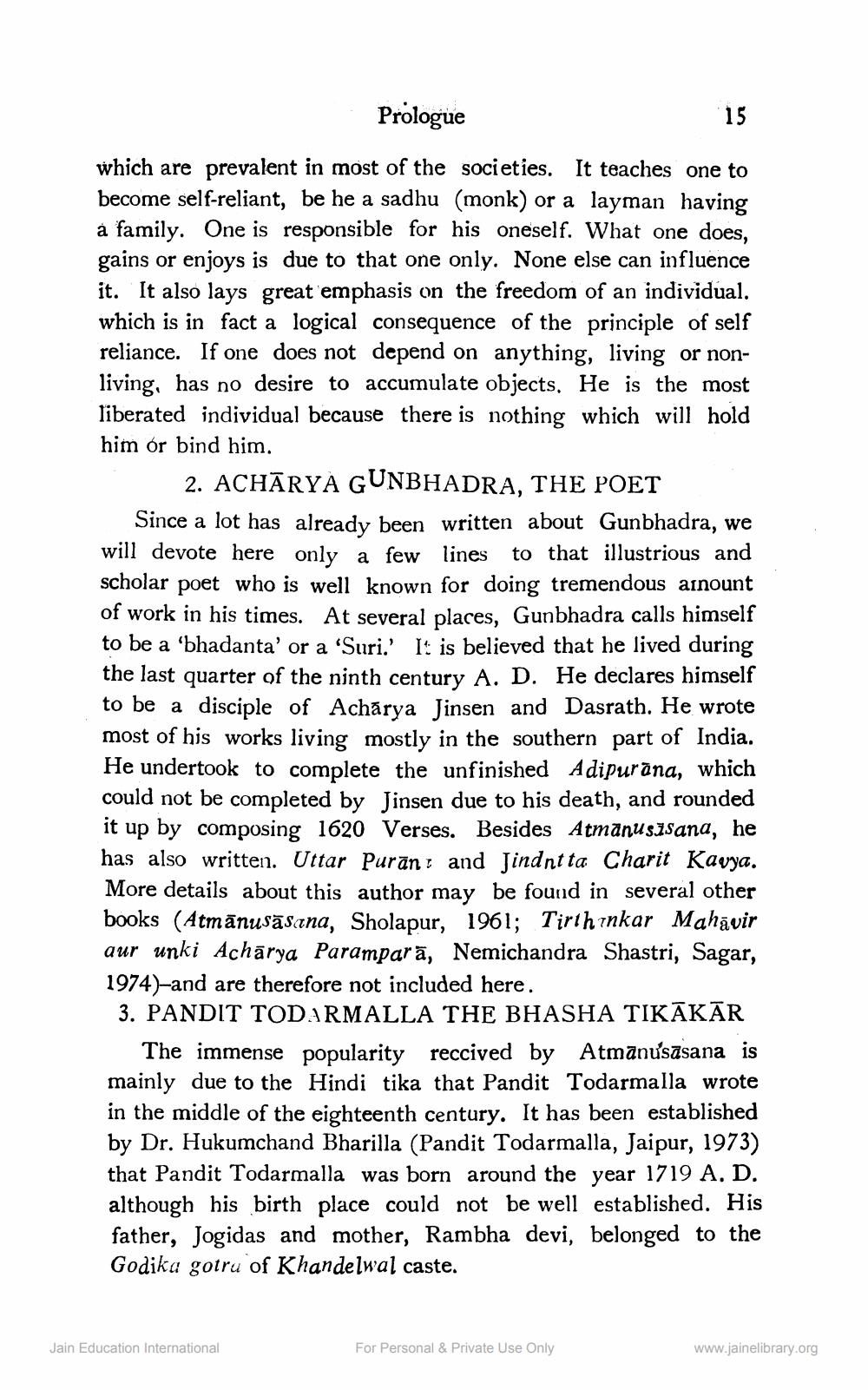________________
Prologue
which are prevalent in most of the societies. It teaches one to become self-reliant, be he a sadhu (monk) or a layman having a family. One is responsible for his oneself. What one does, gains or enjoys is due to that one only. None else can influence it. It also lays great emphasis on the freedom of an individual. which is in fact a logical consequence of the principle of self reliance. If one does not depend on anything, living or nonliving, has no desire to accumulate objects. He is the most liberated individual because there is nothing which will hold him or bind him.
2. ACHARYA GUNBHADRA, THE POET
Since a lot has already been written about Gunbhadra, we will devote here only a few lines to that illustrious and scholar poet who is well known for doing tremendous amount of work in his times. At several places, Gunbhadra calls himself to be a 'bhadanta' or a 'Suri.' It is believed that he lived during the last quarter of the ninth century A. D. He declares himself to be a disciple of Acharya Jinsen and Dasrath. He wrote most of his works living mostly in the southern part of India. He undertook to complete the unfinished Adipurana, which could not be completed by Jinsen due to his death, and rounded
it
up by composing 1620 Verses. Besides Atmanusisana, he has also written. Uttar Puran and Jindntta Charit Kavya. More details about this author may be found in several other books (Atmānusāsana, Sholapur, 1961; Tirthankar Mahāvir aur unki Acharya Paramparā, Nemichandra Shastri, Sagar, 1974)-and are therefore not included here.
3. PANDIT TODARMALLA THE BHASHA TIKĀKĀR
The immense popularity reccived by Atmanusāsana is mainly due to the Hindi tika that Pandit Todarmalla wrote in the middle of the eighteenth century. It has been established by Dr. Hukumchand Bharilla (Pandit Todarmalla, Jaipur, 1973) that Pandit Todarmalla was born around the year 1719 A. D. although his birth place could not be well established. His father, Jogidas and mother, Rambha devi, belonged to the Godika gotra of Khandelwal caste.
Jain Education International
15
For Personal & Private Use Only
www.jainelibrary.org




